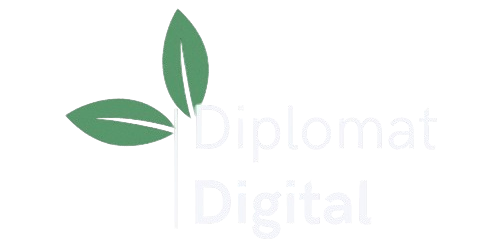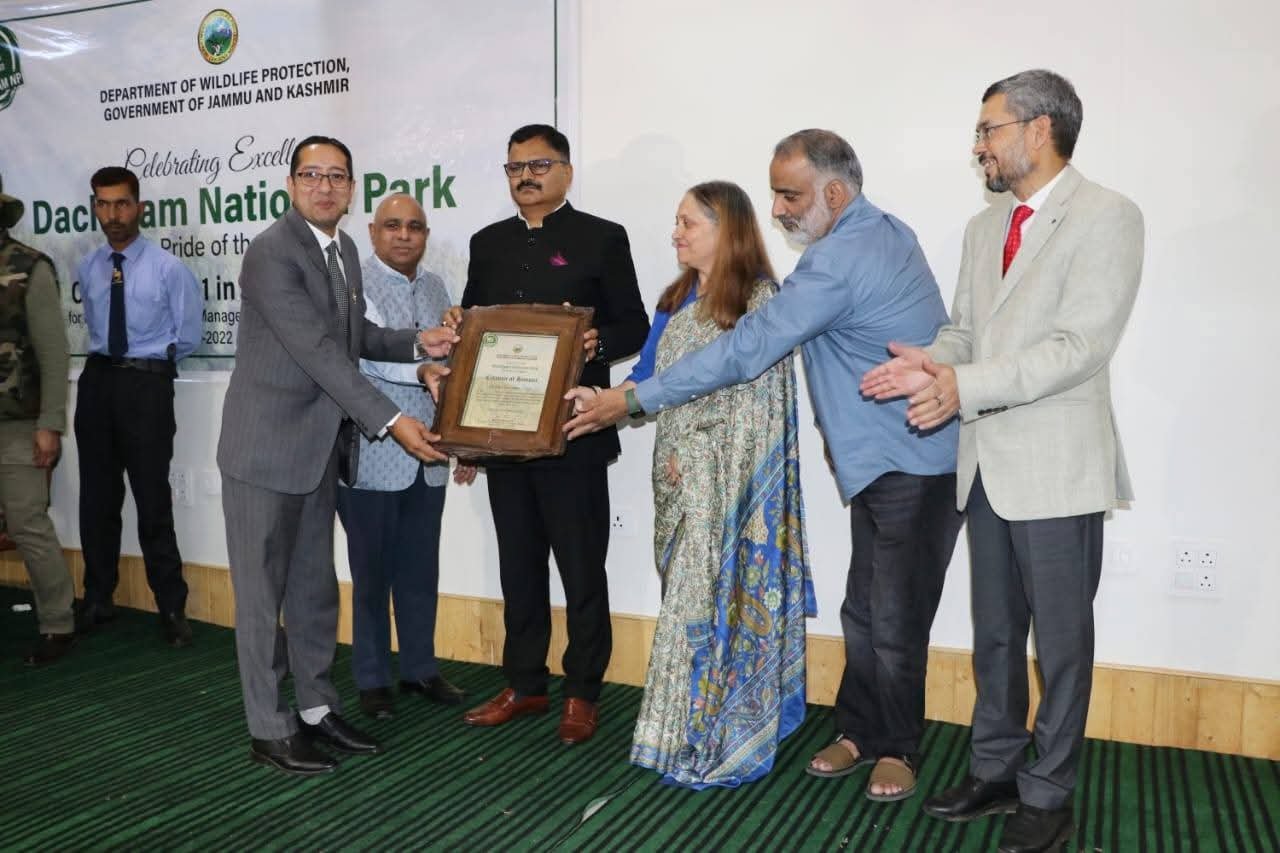Diplomat Correspondent
Srinagar, DD: In a landmark moment for conservation efforts in Jammu & Kashmir, Dachigam National Park has been officially recognised and notified as the No. 1 National Park of India. This prestigious honour marks a pivotal achievement in the realm of wildlife protection and acknowledges Dachigam’s unique ecological significance — especially as the last viable habitat of the critically endangered Hangul, India’s only surviving red deer species.
The announcement was formally celebrated in a felicitation ceremony, where the Wildlife Conservation Fund (WCF) and its youth-led partner organisation YPJK were commended for their tireless dedication to preserving the fragile ecosystem of Dachigam. Their long-standing efforts have contributed significantly to both the protection of biodiversity and the empowerment of local communities.
Speaking on the occasion, Nadeem Qadri, Environmental Lawyer and Chief Executive Director of Wildlife Conservation Fund – The Nature University, stated:
“This recognition is not merely an accolade, but a collective call to action — to protect, preserve, and actively participate in securing the future of Dachigam and the Hangul. We are deeply grateful to the Sanctuary Nature Foundation for their enduring support and shared vision.”
He further highlighted the vital role of the ‘Mud on Boots’ project — a flagship initiative by the Sanctuary Nature Foundation, which continues to empower local youth and community members to take on leadership roles in conservation. The project embodies the spirit of grassroots stewardship, ensuring that those living closest to Dachigam are at the forefront of its protection.
The accolade bestowed upon Dachigam comes at a crucial time, reinforcing the urgency of safeguarding not just its flagship species, but the entire ecosystem — from alpine forests to high-altitude meadows — that makes it a sanctuary of unparalleled biodiversity.
The Department of Wildlife Protection, Jammu and Kashmir also received heartfelt congratulations for its visionary leadership and unwavering commitment to ecological preservation. Their sustained efforts in protecting the Hangul, mitigating human-wildlife conflict, and enhancing park management have played a central role in this national recognition.
As conservationists, researchers, forest officials, and communities unite behind this shared mission, Dachigam stands as a beacon of hope — a living testament to what collaborative conservation can achieve(DD)




